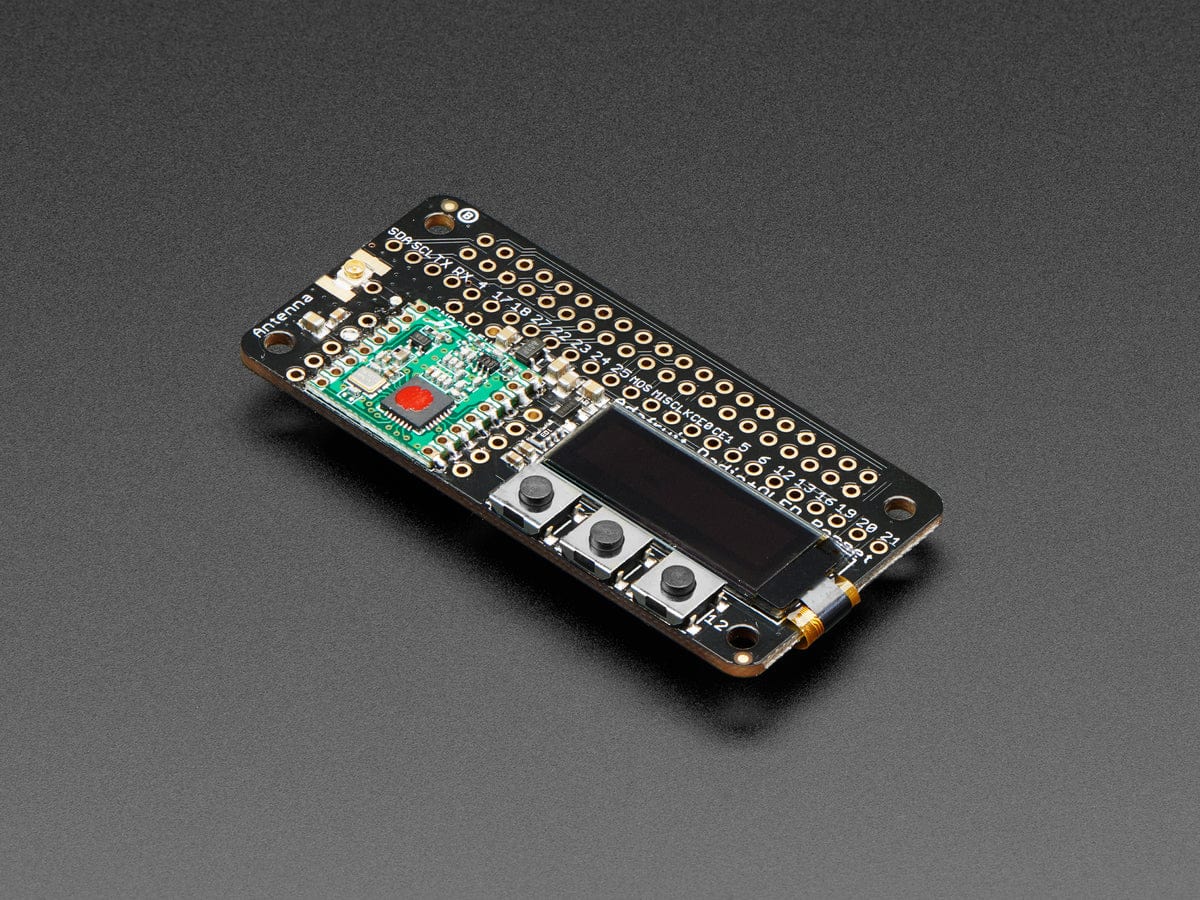
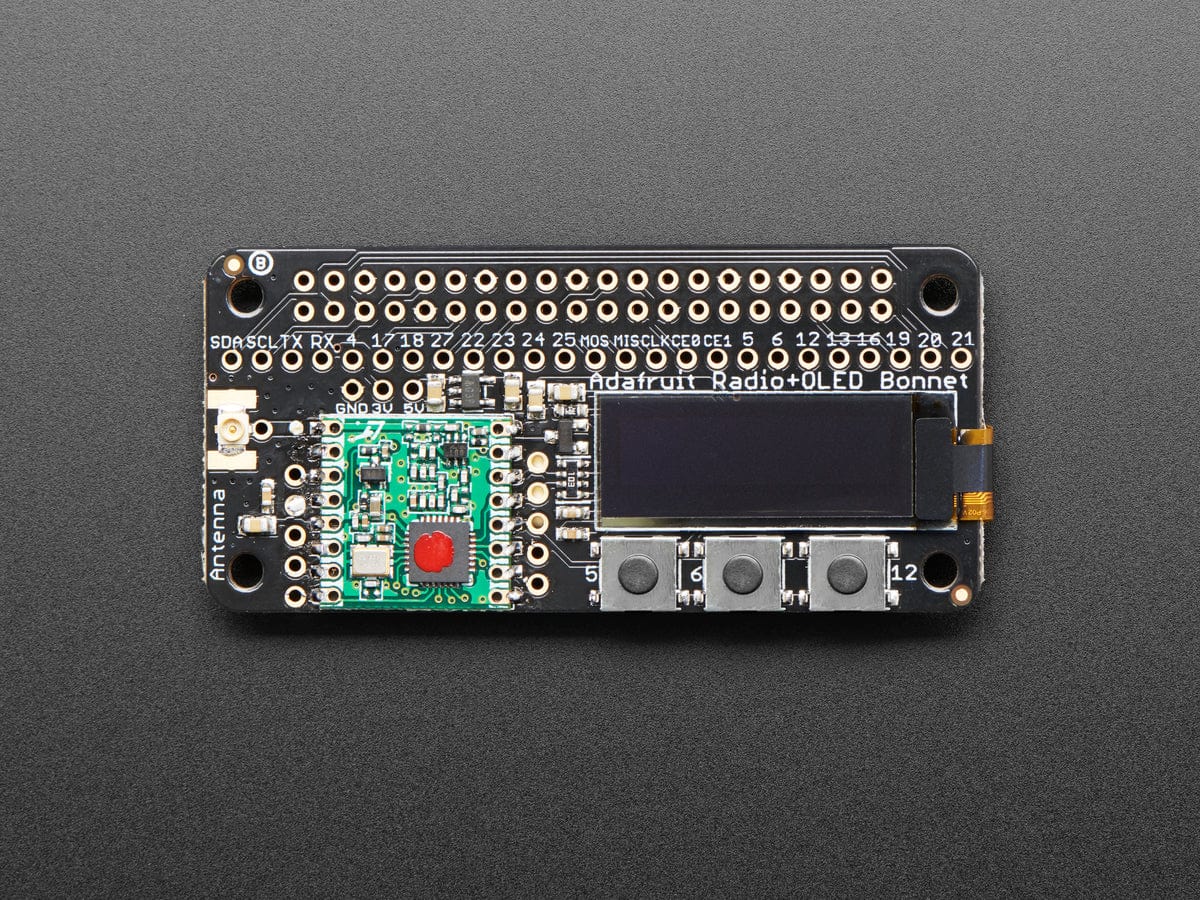
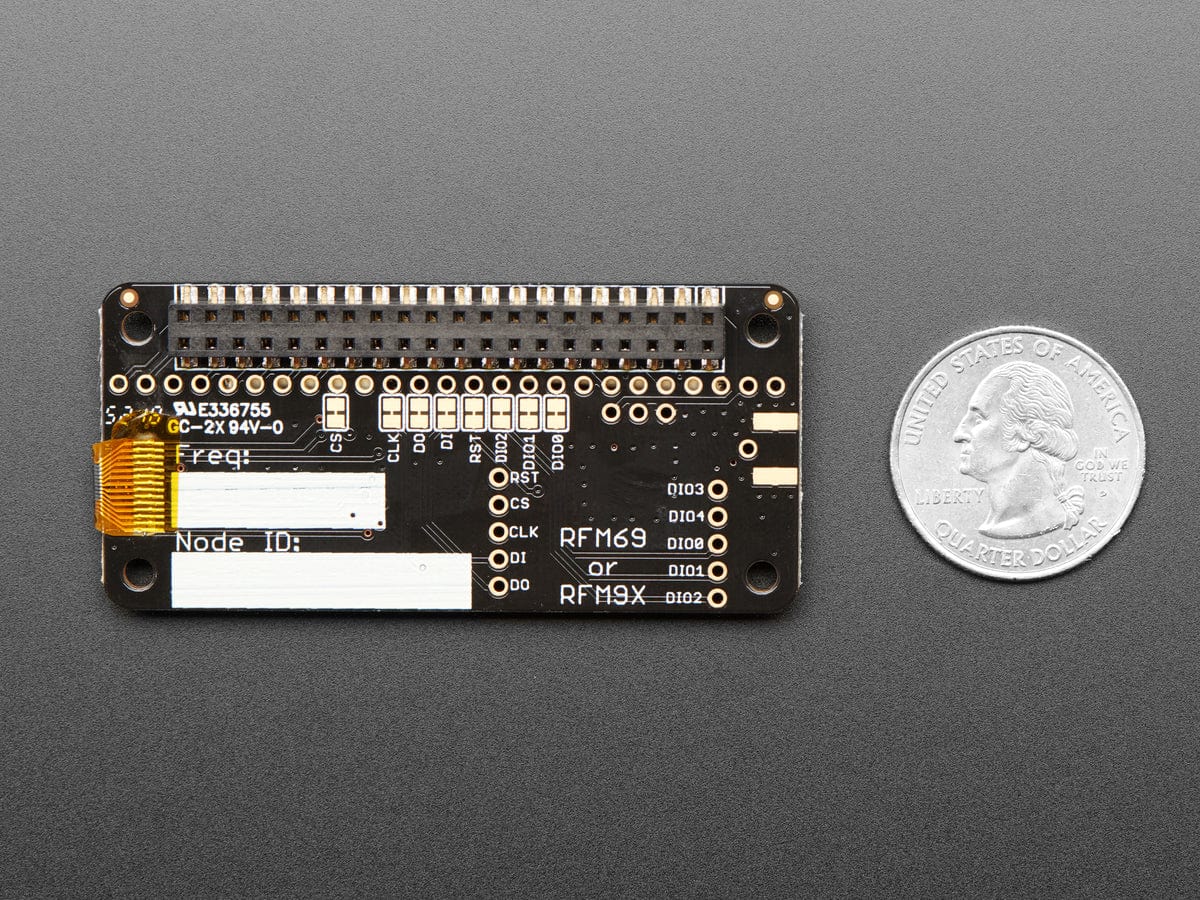
Login / Signup
Cart
Your cart is empty
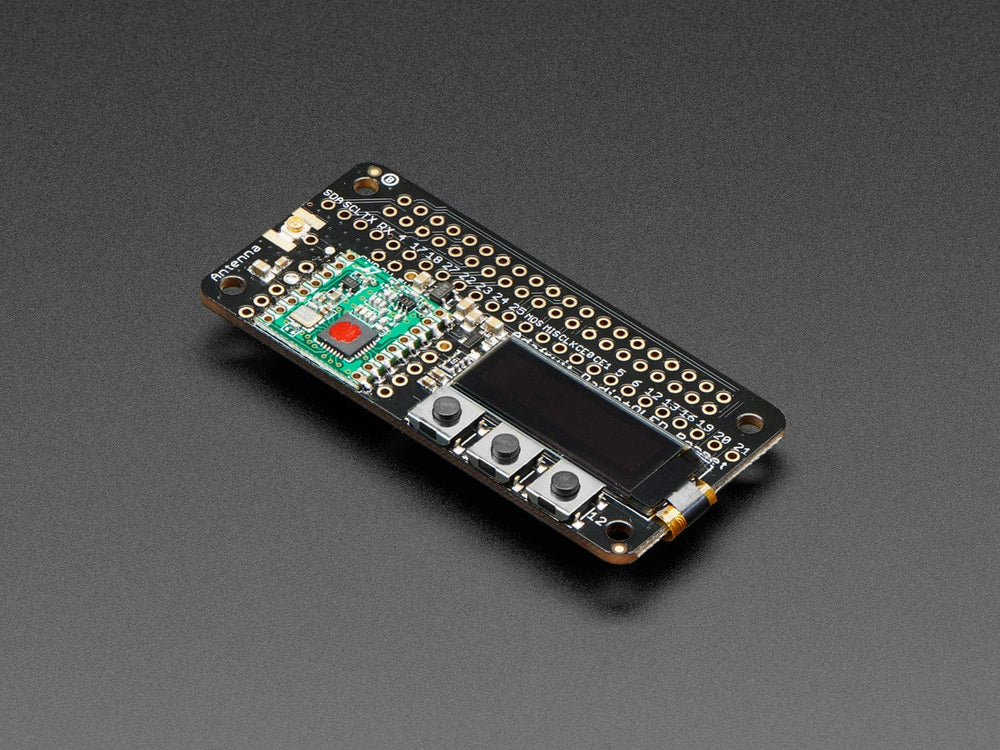
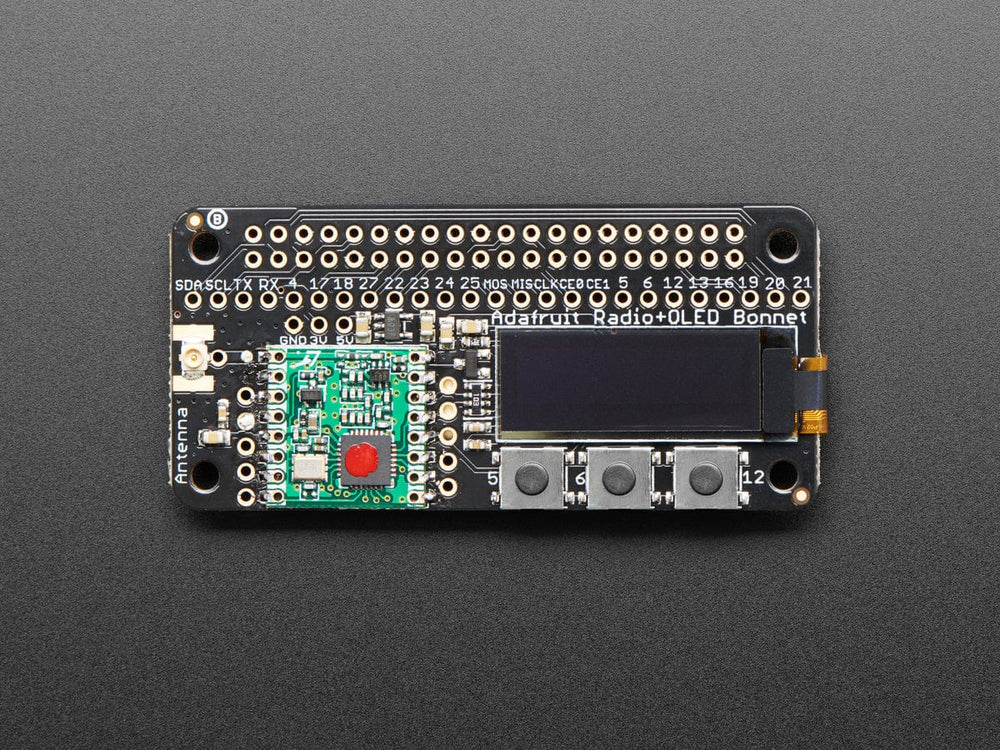
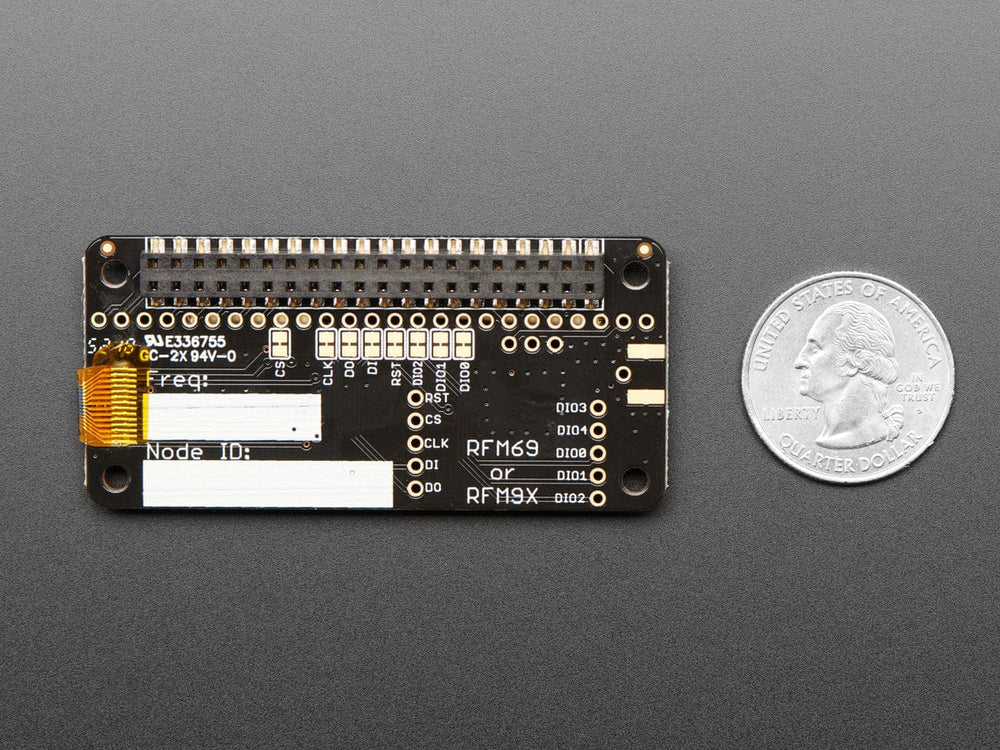
The latest Raspberry Pi computers come with WiFi and Bluetooth, and now you can add even more radio options with the Adafruit Radio Bonnets! Upgrade your Raspberry Pi with a sub-GHz radio transceiver, so it can communicate over long distances. These bonnets plug right into your Pi and give you long range wireless capabilities to remote nodes that may be battery powered. Or, you can create Internet gateways with ease.
You not only get a radio module, but also a 128x32 OLED display for status messages and three buttons you can use for creating a custom user interface or sending test messages. All of the above is supported with our Python libraries so you can send or receive packetized radio data with other matching modules in a network, even craft your own gateway using the Pi's built in networking capabilities.
Compared to the 2.4 GHz WiFi/Bluetooth radios on the Pi already, these modules run at 433 or 900 MHz (sub-GHz). You can't send data as fast but you can send data a lot farther. These packet radios are simpler than WiFi or BLE, you don't have to associate, pair, scan, or worry about connections. All you do is send data whenever you like, and any other modules tuned to that same frequency (and, with the same encryption key) will receive. The receiver can then send a reply back. The modules do packetization, error correction and can also auto-retransmit so it's not like you have worry about everything but less power is wasted on maintaining a link or pairing.
These modules are great for use with other microcontrollers with matching radios (like say our RadioFruit Feathers), say if you want a sensor node network or transmit data over a campus or town. The trade off is you need two or more radios, with matching frequencies.
These radio modules come in four variants (two modulation types and two frequencies) The RFM69's are easiest to work with, and are well known and understood. The LoRa radios are exciting and more powerful but also more expensive.
This is the 433 MHz RFM69 radio version, which can be used for ~433MHz transmission/reception - the exact radio frequency is determined when you load the software since it can be tuned around dynamically. These are +20dBm FSK packet radios that have a lot of nice extras in them such as encryption and auto-retransmit. They can go at least 500 meters line of sight using simple wire antennas, probably up to 5Km with directional antennas and settings tweakings.
All radios are sold individually and can only talk to radios of the same part number. E.g. RFM69 900 MHz can only talk to RFM69 900 MHz, LoRa 433 MHz can only talk to LoRa 433, etc.
Each bonnet comes fully assembled and ready to go. You can attach an antenna via the uFL connector, or cut and solder on a small piece of wire (any solid or stranded core is fine) in order to create your antenna.





